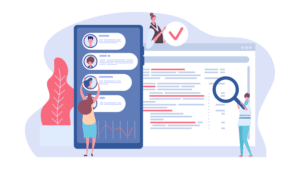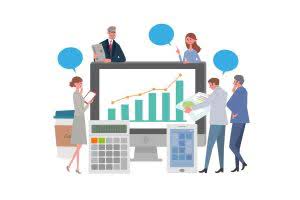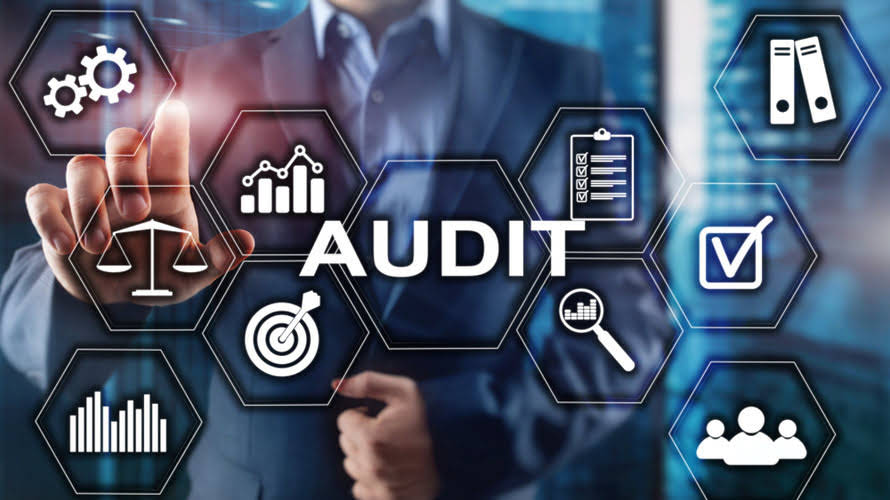
Having decided which industry to enter, where to start it, what and how much to produce, and how and where to sell, the entrepreneur must now tackle the practical part of the problem. The highly-rated Information Systems Specialization from the University of Minnesota on Coursera offers the opportunity to learn the frameworks needed to implement and integrate ERP into business strategy. You’ll be able to evaluate whether ERP is needed and how to develop the appropriate IT infrastructure that will allow the ERP (and business) to thrive. Our team closely follows industry shifts, new products, AI breakthroughs, technology trends, and funding announcements. Articles undergo thorough editing to ensure accuracy and clarity, reflecting DevX’s style and supporting entrepreneurs in the tech sphere. Accounting—Includes tools to effectively see and manage receivables, payables, general ledger, and other routine accounting functions.
- These systems are typically configured by systems integrators, who bring unique knowledge on process, equipment, and vendor solutions.
- If the workflow is mostly automated, much of this manual data entry is performed by the ERP system, perhaps in a dedicated order-to-cash module, and some data fields will already be filled in with information from other modules.
- Your ERP system can seamlessly accommodate these changes as your business grows, expands into new markets, or introduces new products and services.
- To eliminate unnecessary processes and centralize work, they chose the Oracle NetSuite ERP system.
- With any industry, it is important to pick an ERP vendor with industry experience.
Hidden costs of ERP

In this sense, ERP systems not only enhance productivity by removing manual and time-consuming tasks but also facilitate swift and efficient company-wide workflow. These aspects of ERP systems are pivotal for increasing a company’s overall efficiency and profitability. Enterprise Resource Planning (ERP) is an important technology term because it refers to the powerful and strategic business process management tools used to manage information within an organization. These integrated systems help streamline processes by automating business operations, ranging from accounting and human resources to customer relationship management and supply chain management. An ERP system collects, stores, and manages data related to these business activities, providing a single-source overview that contributes to more efficient decision-making and overall operational effectiveness. Enterprise resource planning (ERP) is the integrated management of main business processes, often in real Restaurant Cash Flow Management time and mediated by software and technology.
The History and Evolution of ERP Systems: The Past and Future
Once broken processes are identified, businesses can take the next steps to overcome these business challenges and support business growth. There are three main types of ERP systems that function with different deployment model options. The most common types of ERP systems include cloud ERP, on-premise ERP, and hybrid ERP. The offers that appear on the website are from software companies from which CRM.org receives compensation. This compensation may impact how and where products appear on this site (including, for example, the order in which they appear).
What is New with Enterprise Systems?

Given that these solutions provide an integrated solution to the needs of an organization, these systems are in high demand by all organizations. The full potential of these systems can only be realized only if they are successfully implemented. However, Accounting Periods and Methods the implementation process is costly and time consuming, and thus requires careful planning and organization. If successfully implemented, ERP systems provide many benefits to those organizations that adopt them.

- If successfully implemented, ERP systems provide many benefits to those organizations that adopt them.
- Instead of being hosted locally on company servers, data and applications are stored on remote servers managed by a cloud service provider.
- ERP systems typically include many configurable settings that in effect modify system operations.
- In addition to automating administrative tasks, Human Resources modules also provide tools for more effective HR management, such as performance tracking, succession planning, and workforce analytics.
- Today’s cloud-based ERPs take this integration even further by offering real-time data analytics, enabling decision-making based on current trends rather than historical data.
- It collects information about the activity and state of different divisions, making this information available to other parts, where it can be used productively.
In short, the role of an ERP is to provide a unified, real-time view of company data, automate tedious operational processes and improve the efficiency and performance of the company as a whole. More and more companies are adopting ERP to improve their competitiveness and enterprise resources definition agility in the marketplace. ERP solutions have become more accessible, customizable and affordable for small and medium-sized businesses.

Enterprise Resource Planning 101: Definition, Benefits, and Key Components
- Enterprise resource planning (ERP) is a platform companies use to manage and integrate the essential parts of their businesses.
- It needs connectivity and integration with other applications and data sources, including CRM/CRO and HCM software, e-commerce platforms, industry-specific products, and ERP software.
- The modular, integrated business software grew to encompass other so-called back-office business functions, including HR.
- You can think of an enterprise resource planning system as the glue that binds together the different computer systems for a large organization.
- Modern businesses must be prepared to adapt to the ever-changing landscape of their industry.
- In addition to the above tier criteria, there is a wide range of features and capabilities to consider.
Educating a vendor about the nuances of a new industry is very time consuming. Here is a look at the different phases of the ERP Implementation Life Cycle. A sound ERP software system may have several functions mainly determined by the industry and module they offer. With exponential progress in systems’ data storage and computing capacity per Moore’s law, we witness advancements in enterprise software systems. The cost of ERP software varies depending on the solution you choose (cloud or on-premise) and how many modules you need.
